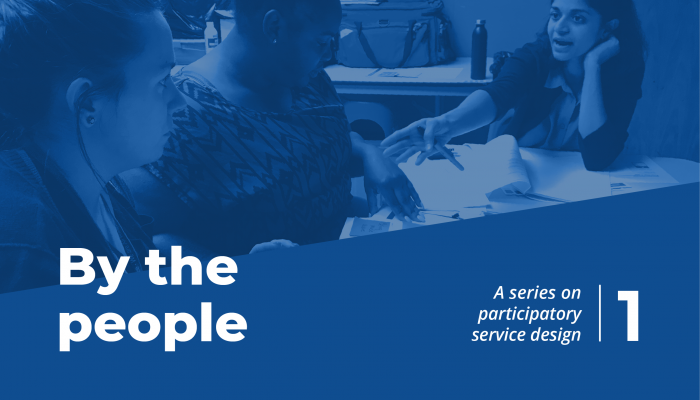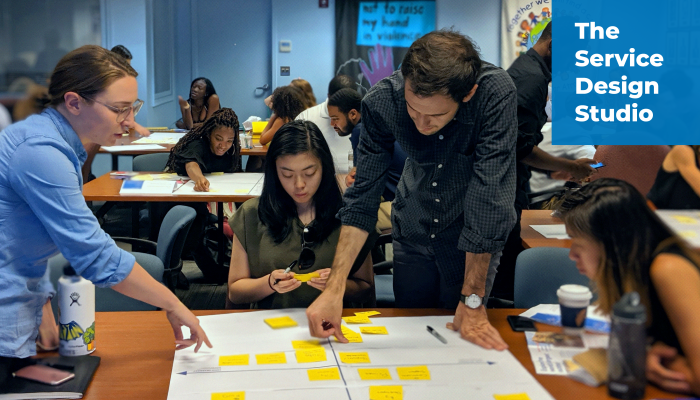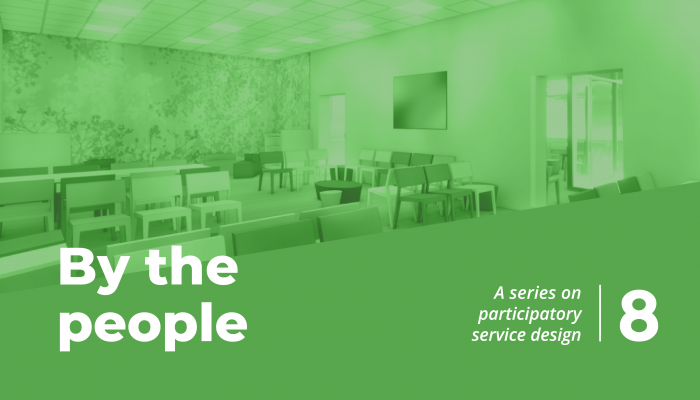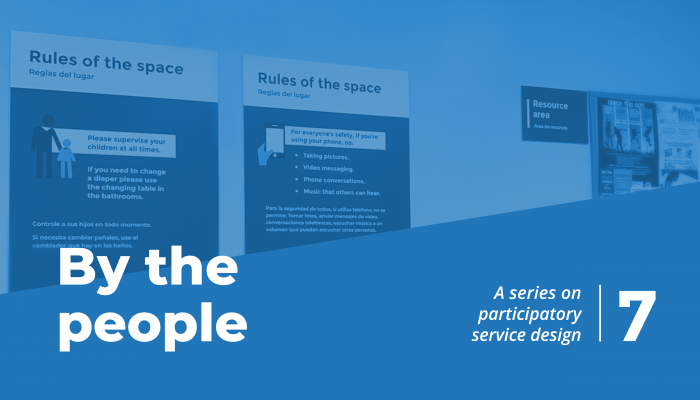What does person-centered service delivery look like for people facing imminent homelessness, people experiencing homelessness, and the staff who are trying to help them? Throughout 2018, the Office of Open Data & Digital Transformation (ODDT) teamed up with the Office of Homeless Services (OHS) through the PHL Participatory Design Lab initiative to answer that question.
When Philadelphians face homelessness, they turn to OHS’s access points for prevention and shelter services. When they arrive, they’re in their most vulnerable state. They’re fleeing domestic violence, they’re sleeping on the street, or they’ve been thrown out of their previous living arrangements. It’s at this time they must navigate spaces, paperwork, and processes that can seem cold, confusing, and opaque.
As a result, they might feel unwelcome or even abandon their efforts to stabilize before they know what help is available.
Staff can likewise experience vicarious trauma while helping those in need. They hear difficult stories. Due to limited resources, staff sometimes feel powerless and unable to help. These realities can lead to burnout, interfering with service delivery.
Over the last year, we’ve engaged 221 stakeholders, including people experiencing homelessness, front-line staff, leaders, advocates, and policymakers, to address these service challenges through a participatory service design process. Throughout 2019, we’ll share our work in greater detail.
New year, new blog series
The PHL Participatory Design Lab offered us the opportunity to establish a permanent service design team within the City of Philadelphia. Now, we’d like to tell you more about our journey through a new series entitled By the people.
Starting in late February of 2019, we’ll publish a monthly blog post that deconstructs our work with OHS and highlights many of the people who sponsored, advised, and contributed to the project’s outcomes. Along the way, we’ll share what we learned and discuss the value of participatory service design in the public sector.
Topics will include:
- An introduction to the project, partner ecosystem, and areas of focus.
- Our participatory service design approach.
- Our methods of engaging participants and staff throughout the design process.
- The ethics of design research or equity-centered design.
- Insights gathered through deep fieldwork.
- Our pilot projects.
- Trauma-informed service patterns.
. . . . . . . . . . . . . .
In our next post, we discuss the people in people-centered.
If you have questions or comments, feel free to email oddt@phila.gov.




